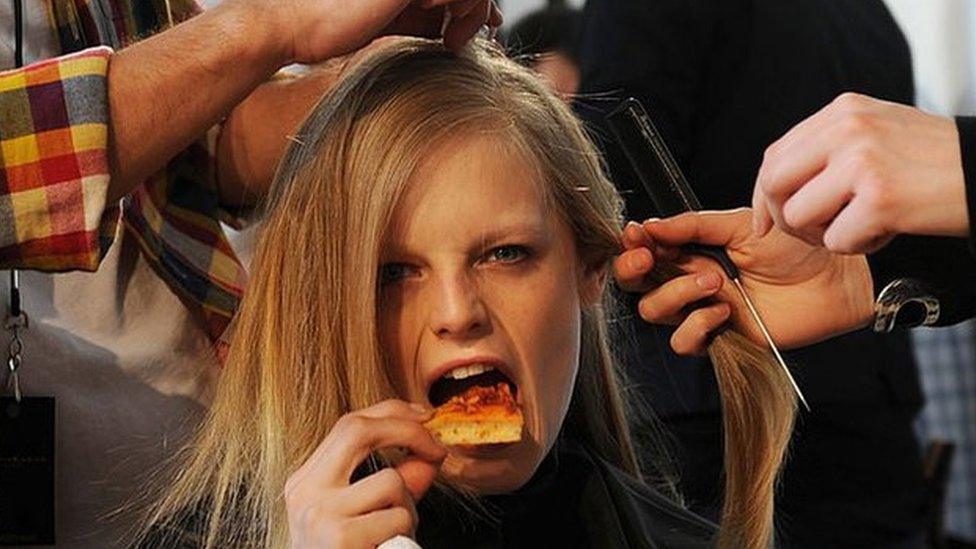How women's magazines like Vogue got political in 2016
- Published
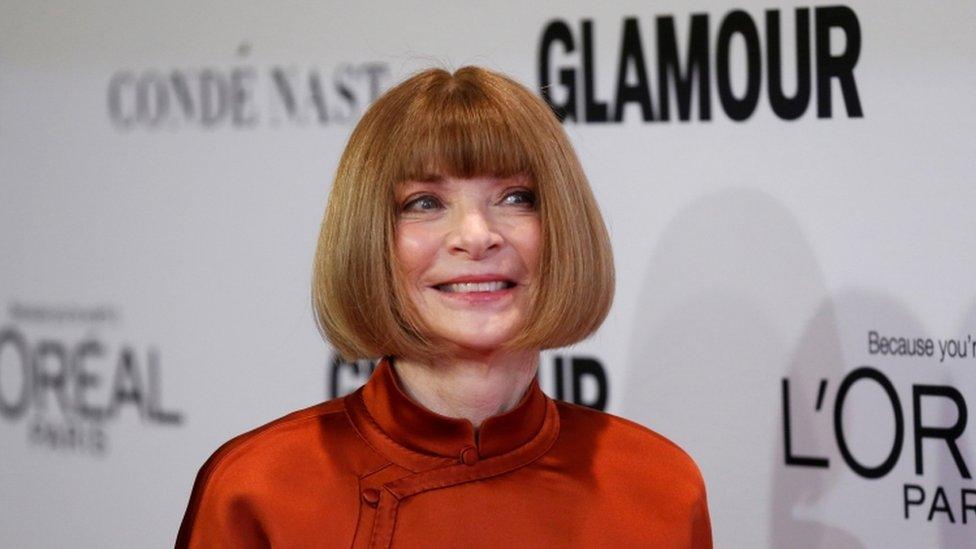
Anna Wintour, editor in chief of US Vogue, is one of the most powerful women in the media
Tensions are simmering between the US magazines Vogue and Teen Vogue, and the country's president-elect Donald Trump.
Last week, legendary Vogue editor Anna Wintour, considered one of fashion's most influential voices, was overheard on a train lambasting the mogul., external
Her comments came as Teen Vogue ran a "scorched-earth" attack , externalon Mr Trump, posting an opinion editorial that accused him of repeatedly lying to the public.
Many online readers were shocked by the ferocity of the piece - and Miss Wintour's criticisms.
But what both show is that 2016 has changed women's magazines, perhaps forever. Vogue and others are now unashamedly political, securing access to top-ranking leaders and endorsing their favourites in print.
'Vogue's with Her'
Vogue set out its stall for then Democratic nominee Hillary Clinton in mid-October, by endorsing her for the presidency, external.
"Vogue has no history of political endorsements," the fashion Bible noted, before stating that it was making an exception "given the profound stakes of this one".
Critics said the glossy had no business weighing in on politics, but many readers praised it for considering readers' core concerns.
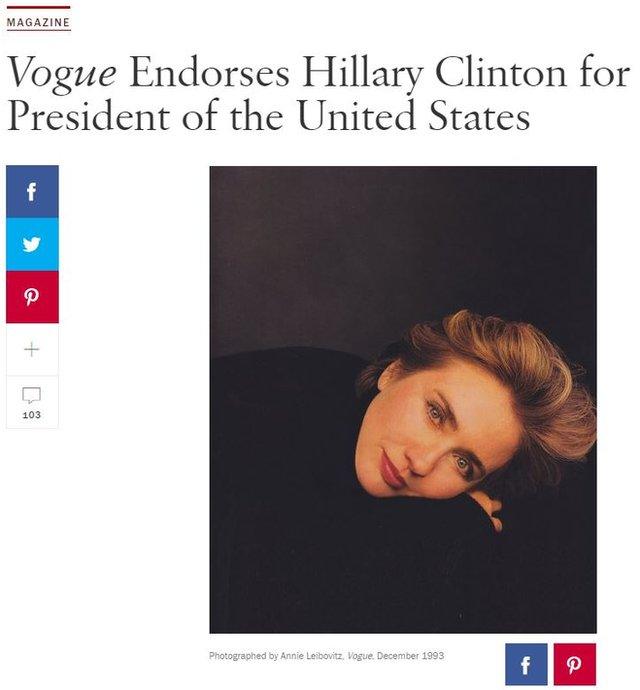
Vogue's backing of Hillary Clinton was the magazine's first political endorsement
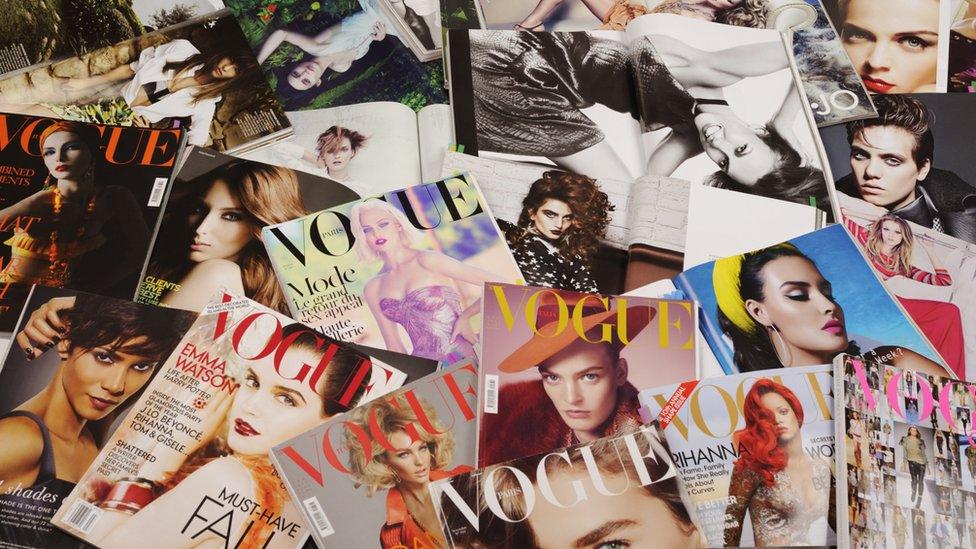
Vogue has also featured many members of the Trump family over the years
Vogue pointed out that while it has profiled Ms Clinton six times, it has also featured Ivana, Marla, Melania, and Ivanka Trump repeatedly in its pages.
And it wasn't alone in making a historic exception.
"For me, the only option is Hillary Clinton," Glamour magazine editor-in-chief Cindi Leive wrote the same month, in a piece titled "In This Election, I'm With Her", external.
Ms Leive noted that after four election cycles spent at Glamour, 2016 was the first time she had felt compelled to share her private views.
Surprise! Teenage girls care about politics
Vogue uses 'real women' in special issue
Nine down-to-earth discoveries I made at Vogue magazine
"One of the two major candidates [Hillary Clinton] is an experienced public servant, while the other [Donald Trump] sports a decades-long résumé of dismissiveness toward women and their concerns," she wrote.
The same passion for politics crossed the border to Marie Claire Mexico, external, which put Ivanka Trump on its cover along with a public plea: "#DearIvanka. When will you protect us from your father?"
Why so surprised?
One reason the recent Teen Vogue opinion piece spread like wildfire online is that non-readers associate the brand with boyfriend angst and make-up tips.
Few people expected it to publish something so hard-hitting. But maybe they should have.
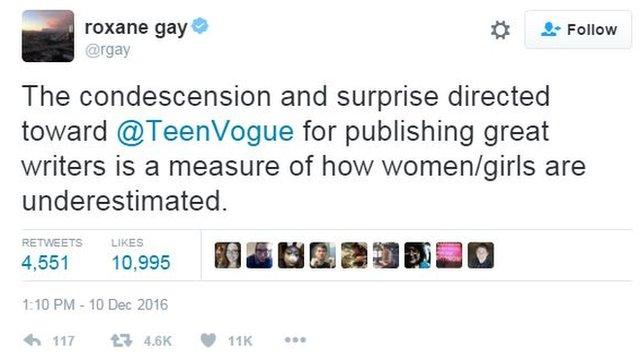
Professor Roxane Gay saw signs of sexism in the response to the Teen Vogue piece on Trump
"Young women have been excited and perhaps disturbed by things like Brexit and Donald Trump," says Barbara Rowlands, an associate professor in the journalism department at City, University of London.
"If there was a junior GQ and they put something like that up, nobody would have batted an eyelid."
Dr Rowlands says younger Teen Vogue readers generally come from an ABC1 readership, and will have heard discussions about Donald Trump - so naturally they are curious.
Feminist commentators have suggested the shock at Teen Vogue publishing a coherent piece of political opinion is a sign of how badly women are under-estimated.
"Stop proudly flaunting your low expectations," advised US feminist writer Roxane Gay on Twitter, external.
2016 WOMEN'S MAGAZINE SCOOPS
Ivanka v Cosmo
In September 2016, Donald Trump's daughter Ivanka cut short an interview with Cosmopolitan.com, external after being asked how her father's childcare policy compared to his past remarks on maternity leave.
Interviewer Prachi Gupta said: "In 2004, Donald Trump said that pregnancy is an inconvenient thing for a business. It's surprising to see this policy from him today. Can you talk a little about those comments, and perhaps what has changed?"
According to Cosmo's transcript, the mother of three replied: "I think that you have a lot of negativity in these questions. So I don't know how useful it is to spend too much time with you on this."
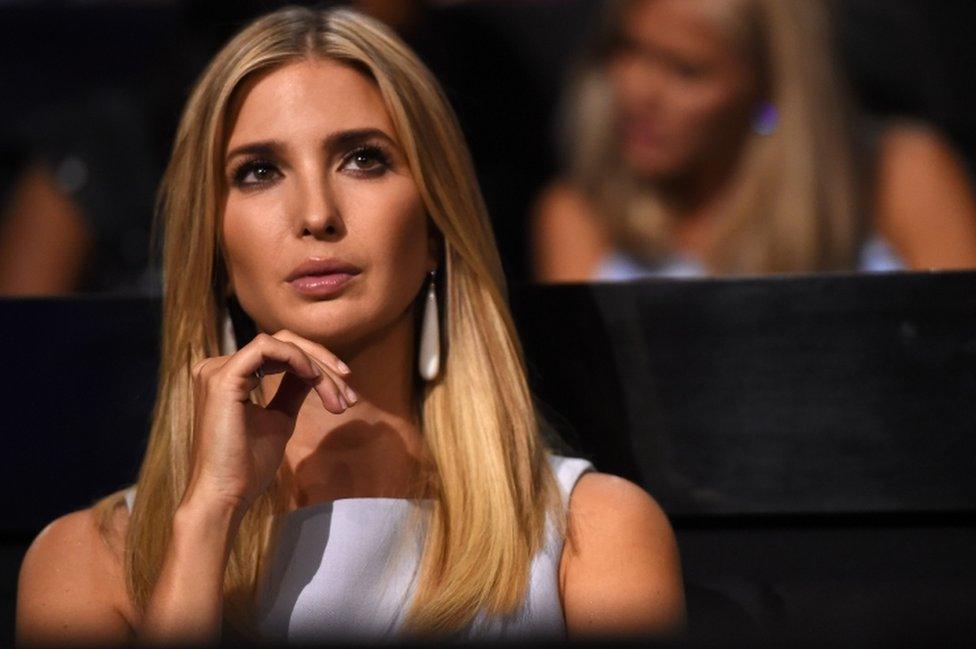
Donald Trump's daughter Ivanka cut short an interview with Cosmopolitan because she found the questions "negative"
She terminated the meeting shortly afterwards.
Ms Gupta's other political reporting has included a video piece where five young women explained why they were voting for Mr Trump, external.
Lenny meets Hillary
Lena Dunham, creator of the HBO TV show Girls, interviewed Ms Clinton for her feminist email newsletter, Lenny., external
The interview was full of personal insights from a candidate frequently accused of lacking warmth, including how she felt about working in a salmon canning factory after college.
Miss Dunham, who was a vocal Democrat supporter in the run-up to the US presidential vote, asked Ms Clinton if she had worried about marrying her husband Bill.
"I was terrified about losing my identity and getting lost in the wake of Bill's force-of-nature personality," the former secretary of state admitted.
"I actually turned him down twice when he asked me to marry him."
Obama for Glamour
In August 2016, President Barack Obama penned an exclusive piece for Glamour magazine about his feminist views as a man and a father.
It was a gesture that showed he was keen to address young women through whatever media they are drawn to.
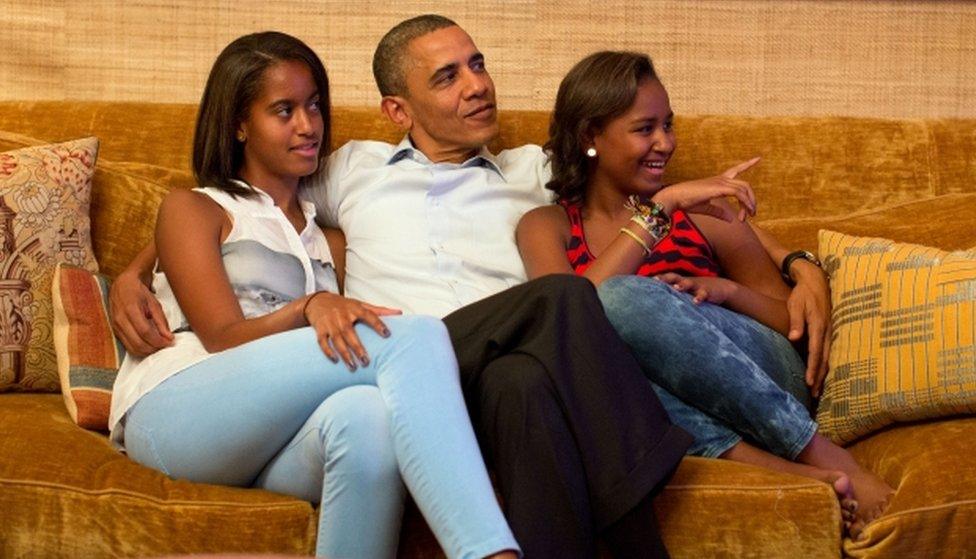
President Barack Obama - pictured in 2012 with his daughters, Malia (left) and Sasha - has given exclusives to Glamour magazine in the past
"Michelle and I have raised our daughters to speak up when they see a double standard or feel unfairly judged based on their gender or race - or when they notice that happening to someone else," he wrote.
"It's important for them to see role models out in the world who climb to the highest levels of whatever field they choose. And yes, it's important that their dad is a feminist, because now that's what they expect of all men."
Glamour says it has 10 million print readers and 15 million unique users online. With that in mind, it seems less surprising that politicians are harnessing it to get their message across.
- Published12 December 2016
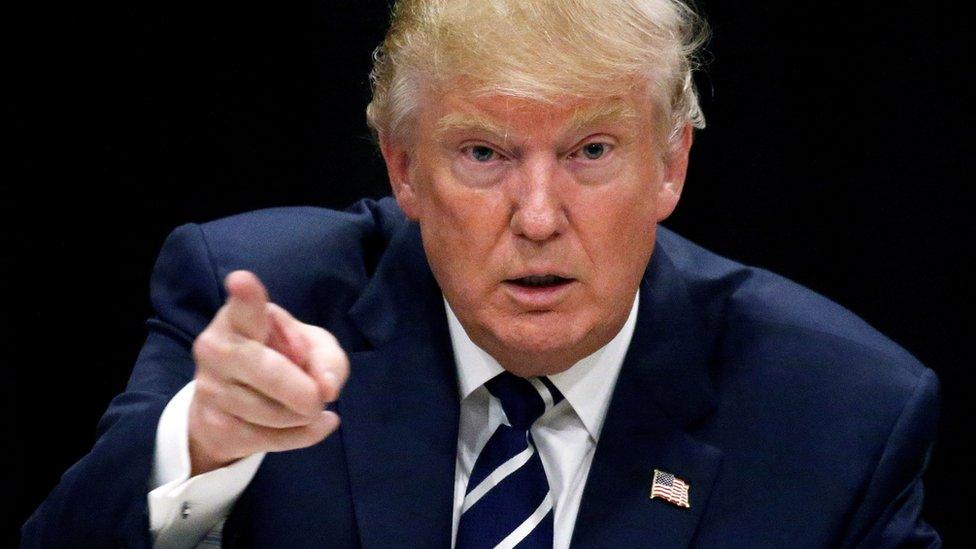
- Published4 October 2016
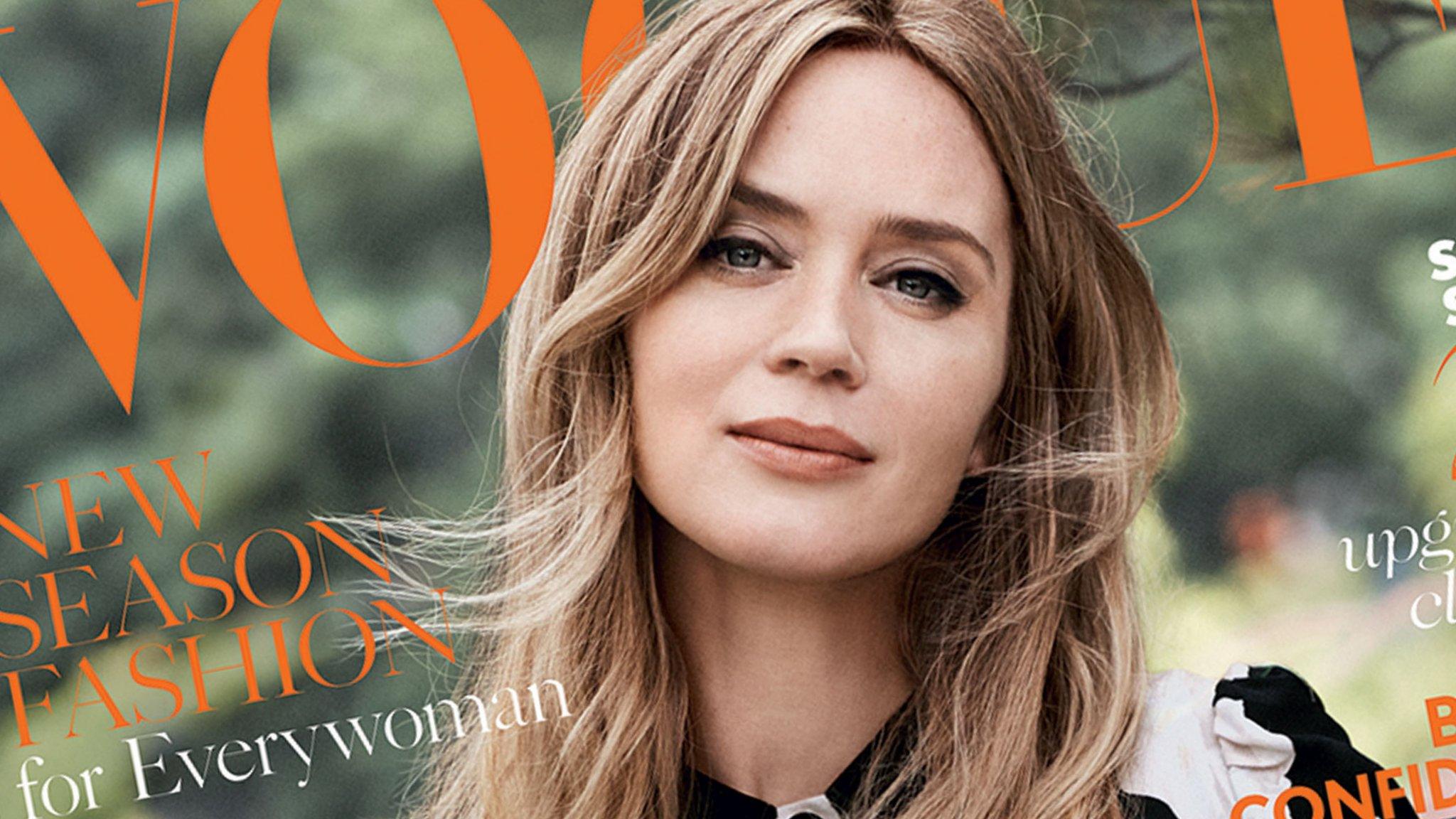
- Published8 September 2016
